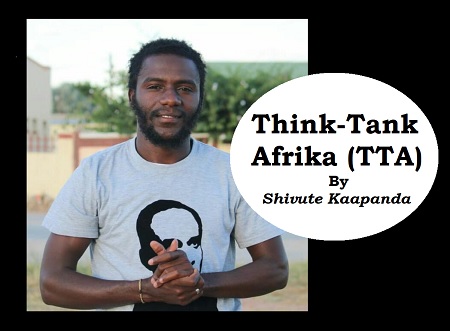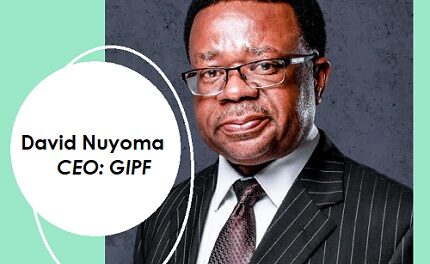Understanding the philosophy of overstanding
By Shivute Kaapanda [Think Tank Africa]
Do you understand? This is the common question people ordinarily ask to suggest whether knowledge is acknowledged and comprehended during the process of communication.
Basically, understanding is a means of grasping and confessing something, be it a fact or some abstract concepts regarding the subject matter in enquiry.
In dialectical dialogues, radical writers use the word “overstand” as a superior substitute of the word “understand”; this is so as to demonstrate superior logic usually for rhetorical effect and to further contribute to the theoretical logics of contemporary literature and argumentation.
While understanding is a mere comprehension and acknowledgement of phenomena, overstanding demonstrates a superior logical account that one must move past the process of comprehension and acknowledgements via consciousness on a given phenomenon by understanding it beyond the obvious.
When one has perceived, absorbed and by several steps of logic mastered an idea beyond doubt, they are said to overstand it. Understanding is a prerequisite of overstanding; you need to understand something first, and once you have mastered the process of understanding, then you gradually begin to overstand it and by this you become ideally liberated and super-conscious; and at this stage you’re a logician and a baptized philosopher.
Though the word “understanding” does not necessarily suggest a femininity status due to its prefix “under” as compared to “over” as in “(over)standing” this also suggests that the term understanding cannot literary be judged to be an understatement neither can one perceive the term “overstanding” as a framed overstatement in the process of standing.
The use and application of the term overstanding predicts and visibly depict an exceptional position not only by its tonnage but by the level and nature of its heightened meaning.
For example the word “overstanding” is beyond the margin of artificial logic and it’s much more enlightening and portrays super consciousness as far as logical interpretation and semantics are concerned. This astute view presents overstanding as a superlative school of logic born of pure knowledge harvest.
Let’s drink from a noble example of an overstanding statement: ‘Common sense is not so common, therefore one cannot claim to have used common sense in any given situation because sense is not always common; by logical extrapolation one can even say common sense is not common, because if sense was common, there would be no contradictions of what is commonly sensible and what is not, because contradiction does not happen in the presence of commonality but rather in its absence’.
This statement can help one to overstand the concept of “common sense”; people do not overstand what “common sense” is but rather understand it. Literally overstanding undermines the process of understanding at all the ranks of submission.
When one understands something he or she comprehends, acknowledges and associates with it but if he or she overstands it that means he or she is conscious about it, knows it not by negotiation but by absolute reason and such reason is hipped in his intellectual independence.
If someone understands a subject he can learn it and eventually pass it well, however if he overstands it, he is capable of creating it, reproduce it, apply it, learn, unlearn and relearn it.
Overstanding is an intellectual state of clarity of things, the power of imagination, education and superlative conception of knowledge whereas understanding is a normative concept that is characterized with disinformation, deception and untruth; a lie can be understood but cannot be overstood because a lie is weightless, intangible and it does not have sound epistemic features.
One can understand that democracy prevails in Africa by understanding the policies and democratic institutions such as parliaments but to the one who overstands democracy he would argue differently that democracy does not prevail but what rather dominate the state of politics in Namibia are substitutes of democracy: elitocracy, partyocracy, etc. With the concept of overstanding, one can see beyond doubt that paper democracy is illusive and by extension it’s false.
Overstanding helps you to be inclusive of focal elements of a subject in question when making logical conclusions. Just like “common sense” which is not so common, democracy is not democratic enough in Africa because the “cracy” (rule) part is real but the “demos” (people) part is very bogus and intellectually intangible.
Do you overstand this account? This narrative awakens one’s intellectual independence. In order to overstand this concept one needs to possess an intellectual insight, and a liberated mind which embrace the ethos, the pathos and the logos of philosophy in a radical fashion.
We need to understand and overstand such concepts of logic for us to birth radical dialogues among ourselves. We should never take it as a norm to accept flawed logics and one-way reasons; the train of intellectual bankruptcy should face a litmus test.
— Shivute Kaapanda is a pan-Afrikan philosophical thinker from Eyanda village in Omusati Region.







